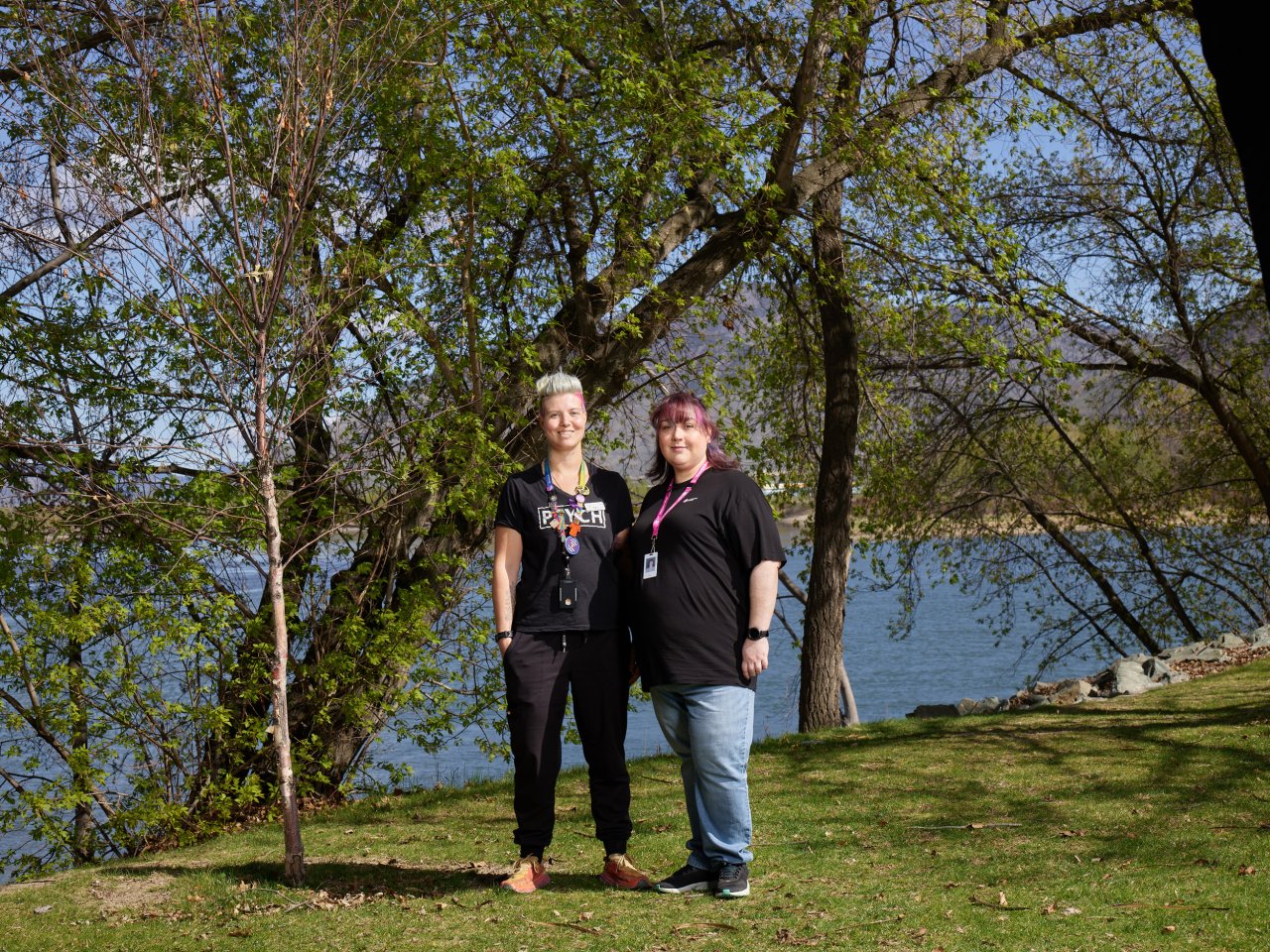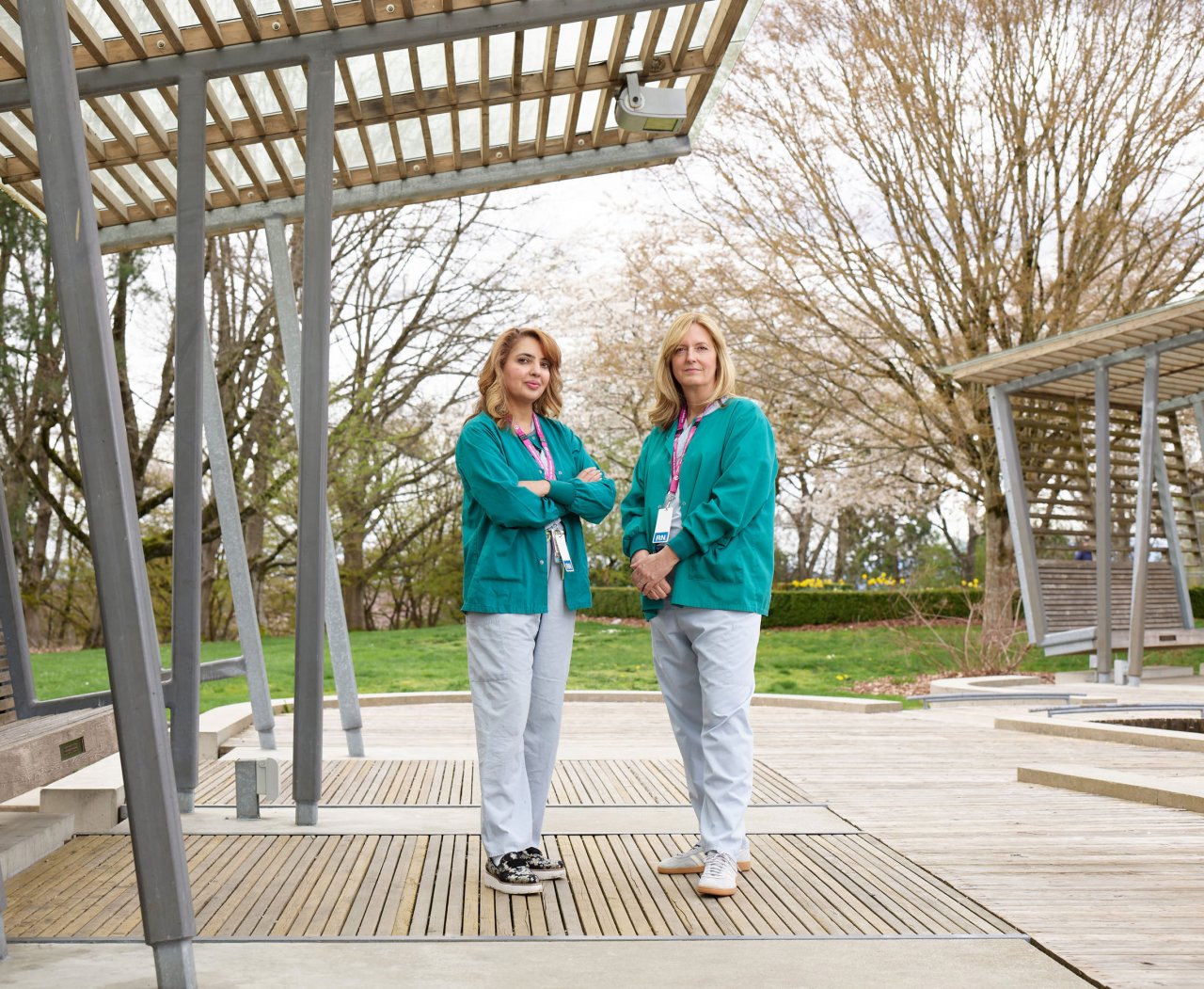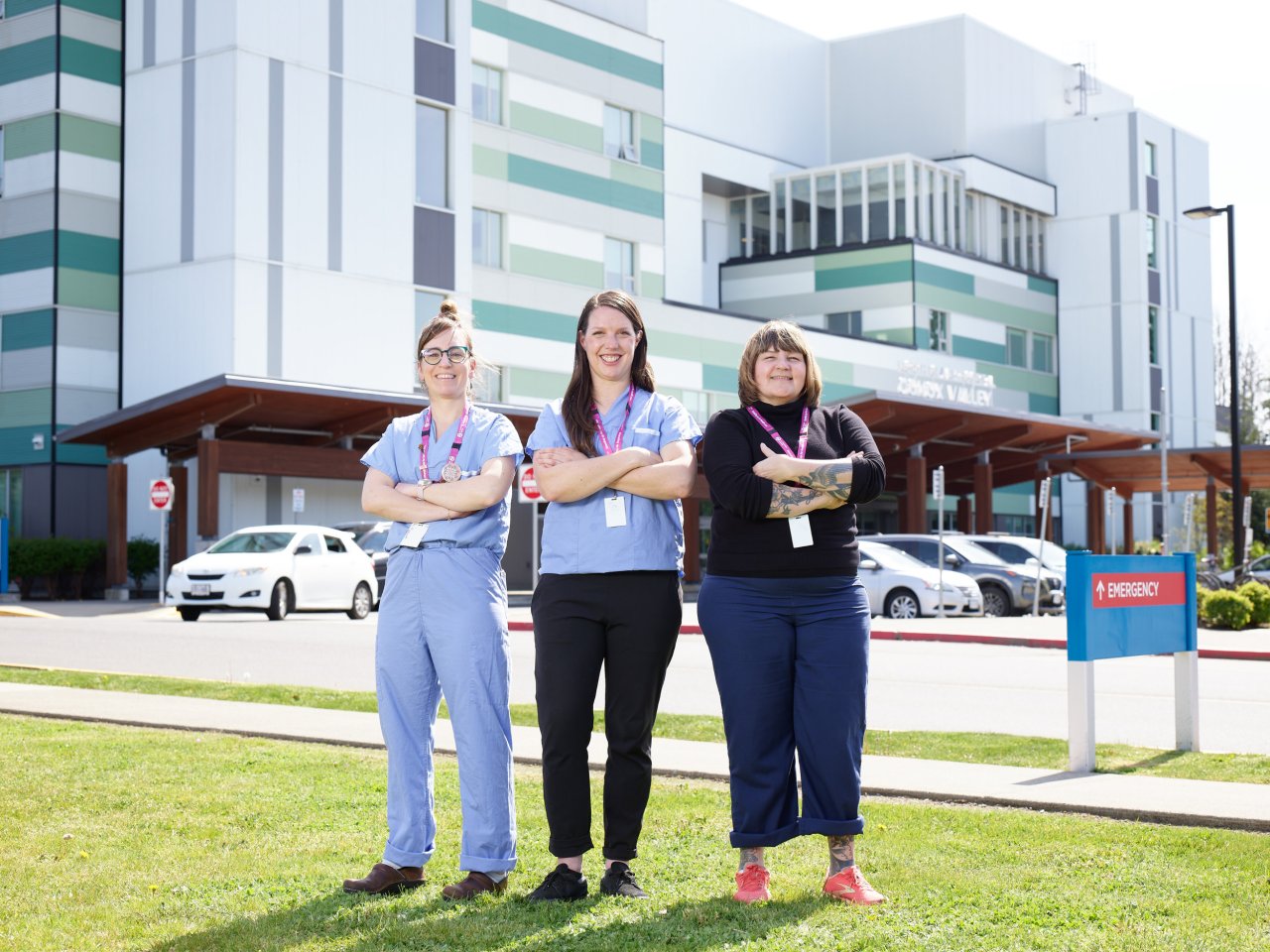BCNU MEMBERS ARE COMMITTED
Building awareness and advocating for inclusivity in BC’s interior.
Across the province, members are creating a safer culture for gender diverse nurses – and patients – one pronoun at a time.
Imagine walking into work every day, only to be called by the wrong name. Again.
Or having to constantly explain who you are, only to be met with indifference, or worse, hostility.
For too long, transgender, Two-Spirit and gender-diverse (T2SGD) nurses in British Columbia have experienced deadnaming, misgendering and discrimination as a painful, everyday reality. These experiences lead to emotional distress, burnout and, in some cases, drive nurses out of a profession they love.
But BCNU members are pushing back.
Members of BCNU's 2SLGBTQ+ Caucus have spent years building awareness and advocating for change – from winning contract language that protects gender-diverse nurses and patients to taking everyday actions that shift culture on the ground. Their long-term commitment to creating more inclusivity for gender expression is helping nurses – and patients – feel more safe in our health-care system.
For years, T2SGD nurses endured discrimination in silence, their struggles dismissed as isolated incidents rather than evidence of systemic bias. The 2SLGBTQ+ Caucus had always worked diligently to support members facing discrimination, but when reports of transphobia directed at nurses and T2SGD patients surged during the COVID-19 pandemic, the caucus demanded action, presenting an emergency resolution to BCNU council demanding that the union study the issue.
“Transphobia and homophobia have always been a problem in the workplace,” says Lindsay Manning, a former 2SLGBTQ+ Caucus representative who advocated for the study. "In the first year of the pandemic, we started hearing reports of transphobia more frequently and severely. Members didn’t feel safe formally reporting their experiences; we knew we weren’t hearing from voices that needed to be heard.”
Joy and community are forms of resistance, too."
— Laura Dion
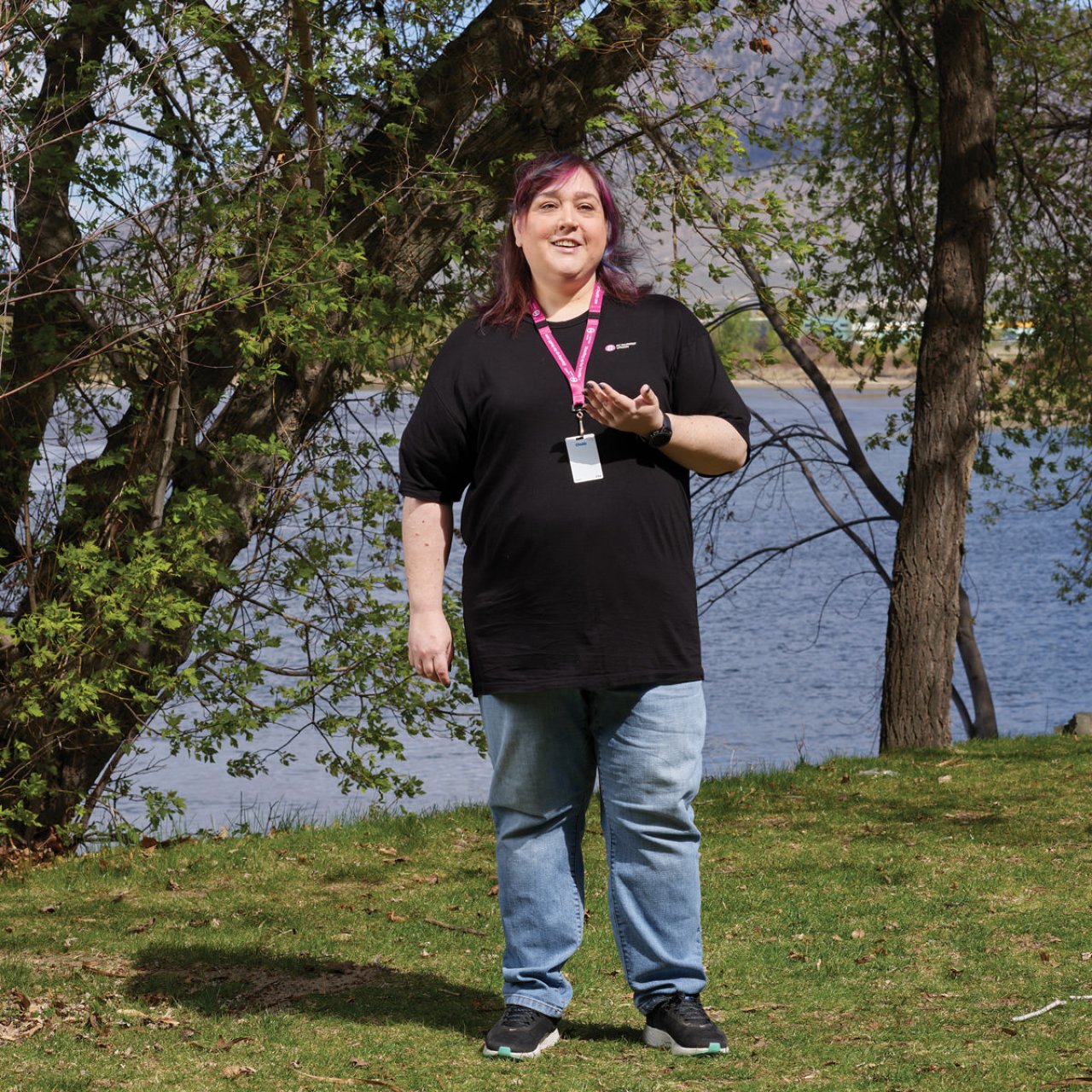
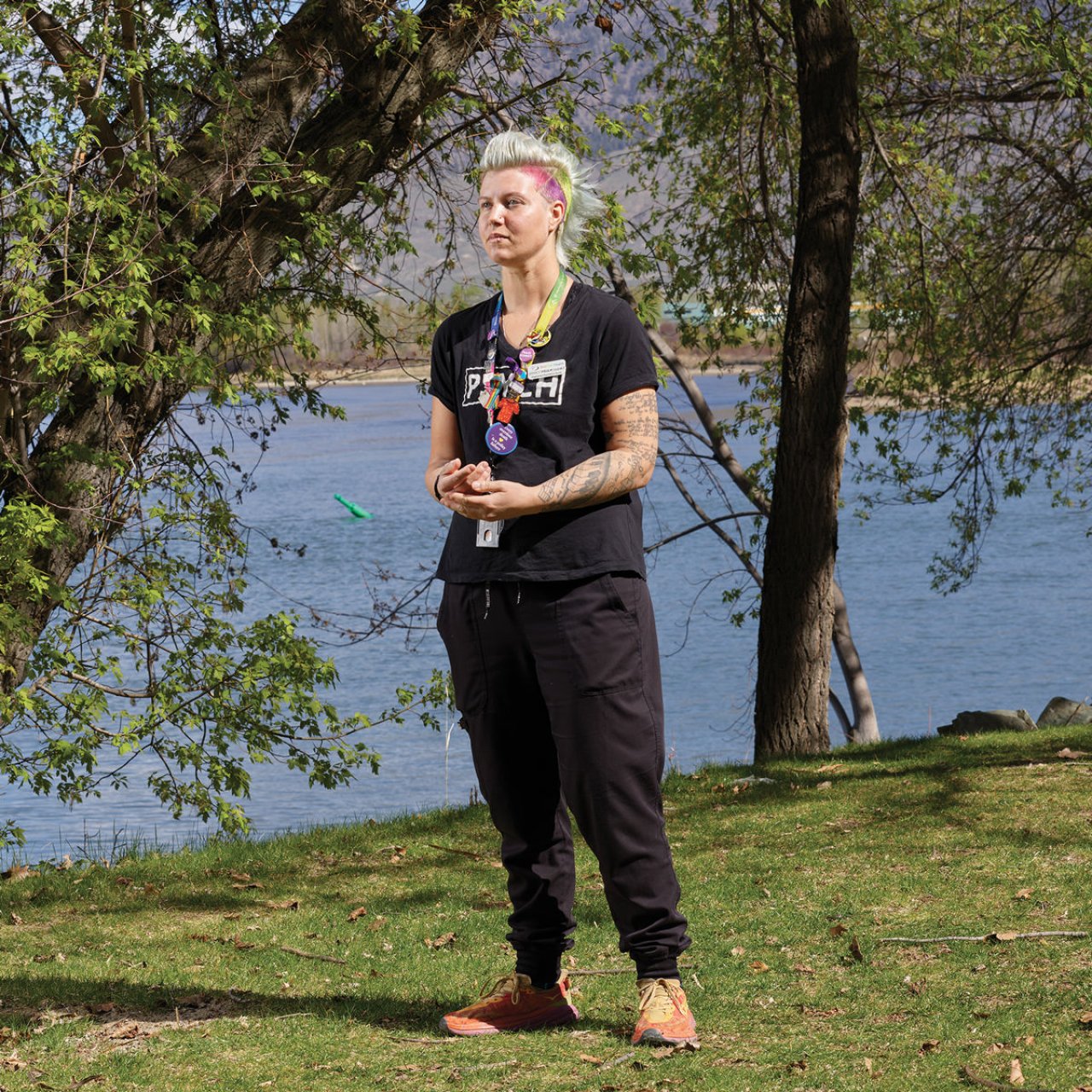
In 2022, following the caucus’ sustained advocacy, BCNU partnered with TransFocus Consulting to conduct a groundbreaking survey revealing the harsh realities of discrimination in health-care workplaces.
The survey’s eye-opening findings uncovered some harsh truths. It found that 81 percent of T2SGD nurses experienced discrimination that most often came from colleagues rather than patients. Many nurses faced daily misgendering, invasive questions about their bodies, or ostracism from peers. Even more troubling, fewer than 25 percent of these nurses felt safe enough to formally report the discrimination they faced, fearing retaliation, being outed as trans, or incurring professional harm. This discrimination exacted a significant emotional toll – nearly half of T2SGD nurses described their work experiences as overwhelmingly negative.
For Indigenous and racialized T2SGD nurses, the results showed an even heavier burden. More than half of Two-Spirit and T2SGD nurses of colour reported plans to leave nursing, highlighting the compounded challenges of racism and transphobia.
The survey results provided irrefutable evidence that something needed to change. Armed with this data, BCNU's 2SLGBTQ+ Caucus pushed for meaningful reforms.
“We have a responsibility to support gender diverse nurses,” says Courtney Blake, BCNU’s 2SLGBTQ+ provincial chair. “We wanted them to know that we hear you, your experiences are valid, and you shouldn’t have to go through this.”
One of the caucus’s first victories came when gender-affirming leave became part of the Nurses’ Bargaining Association (NBA) provincial collective agreement. This historic policy allows workers undergoing gender-affirming medical care to take leave without sacrificing pay or job security.
Across the province, members have been noticing the effects of the leave provisions in the collective agreement.
"It allows people to heal properly," says Ria Dubois, a Kamloops mental health and substance use nurse. “It's really valuable and important that people can take time off to get their medical transition done.”
Aside from enshrining gender-affirming leave, the language also codifies the needs of gender-diverse nurses and patients into the contract.
Campaigns like this can give people the tools and the confidence to do better."
— Ria DuBois
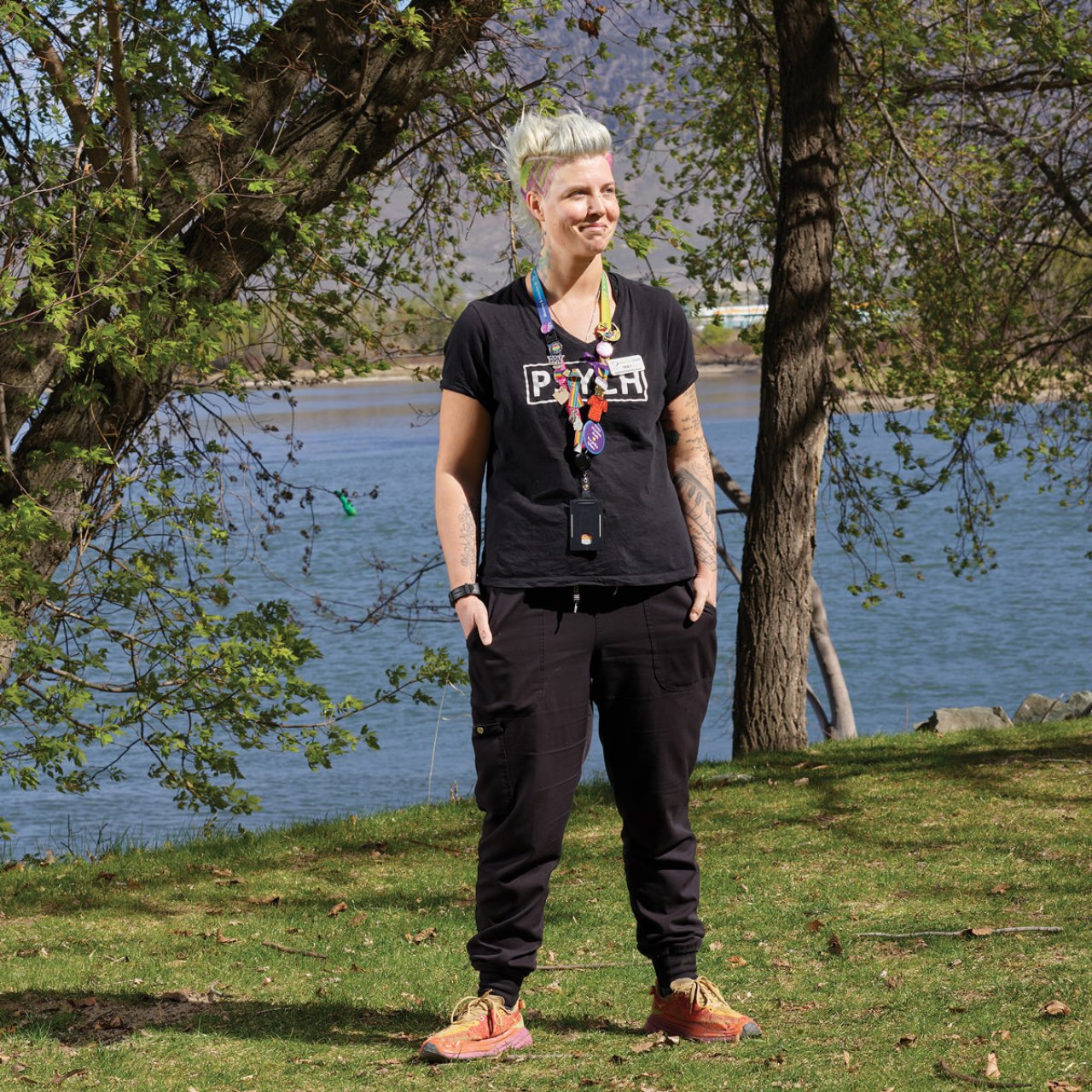
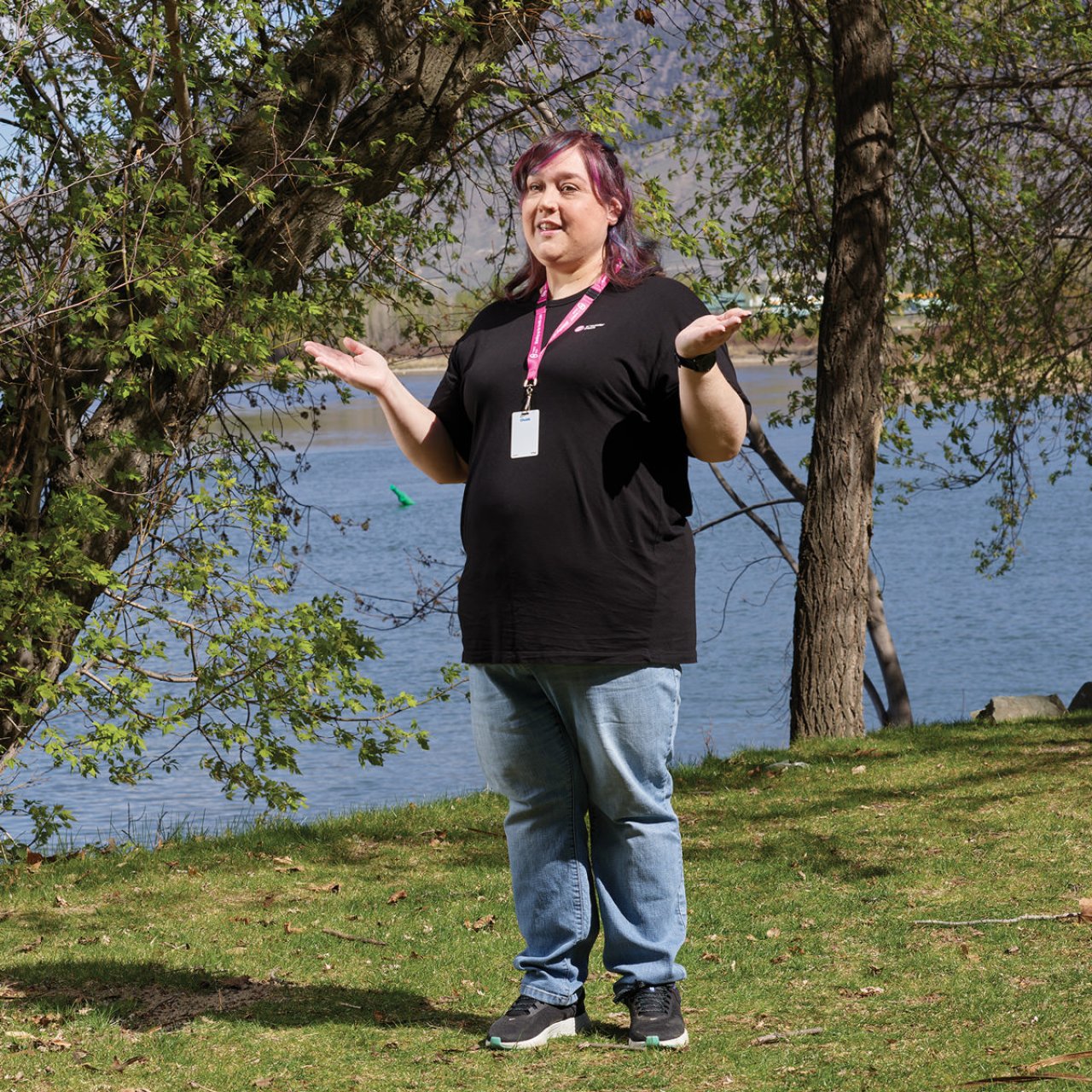
“This language is genuinely changing people's lives,” says Laura Dion, a nurse at Vernon Jubilee Hospital. “It explains what deadnaming and misgendering are. It acknowledges the discrimination gender-diverse nurses have faced. It’s huge.”
Now, the caucus is building on this momentum with a grassroots-led pronouns awareness campaign – an initiative that BCNU members like Dion and Dubois have helped bring to life in their communities.
The campaign centers on education, visibility and conversation. It includes gender-pronoun buttons – designed to help normalize respectful introductions – and community events like drag show fundraisers that celebrate queer culture and build allyship among health-care workers.
“The pins go so fast,” says Dion. “I think we went in with almost 100 pins, and we left with five. I’ve also seen them in public, even just stopping at the grocery store. That visibility matters.”
But it’s not just about buttons. It’s about shifting the daily interactions that shape nurses’ experience.
One member shared that they were consistently misgendered at work for over two years, even after several colleagues reminded co-workers or introduced them with their proper pronouns.
“That silence can feel so heavy,” says Dubois. “But lately, I’ve seen more people asking questions in good faith. That’s the impact campaigns like this can have – it gives people the tools and the confidence to do better.”
That change doesn’t happen by accident. It happens because members like Dion and Dubois keep putting in the work – day after day, conversation by conversation.
At a recent drag show fundraiser that they organized with other caucus members in Kamloops, more than 70 percent of attendees were nurses or other allied health-care workers. “The venue was so packed they had to turn people away at the door,” says Dion. “We showed that joy and community are forms of resistance, too.”
For caucus members, this advocacy isn’t optional – it's essential.
“The louder the hate gets, the louder we need to be,” says Dion. “It just takes one voice, then ten, then a thousand – and one day, you won’t need to talk about it anymore.”
Blake echoes that spirit of steady, invitational change: “The campaign is about reaching out a hand to folks who maybe just don’t understand the lived experiences of gender diverse nurses and giving them the opportunity to learn and become allies to our community,” she says. “We won’t achieve equity unless we create space for people to grow.”
That growth is already happening – because BCNU members are making it happen.

